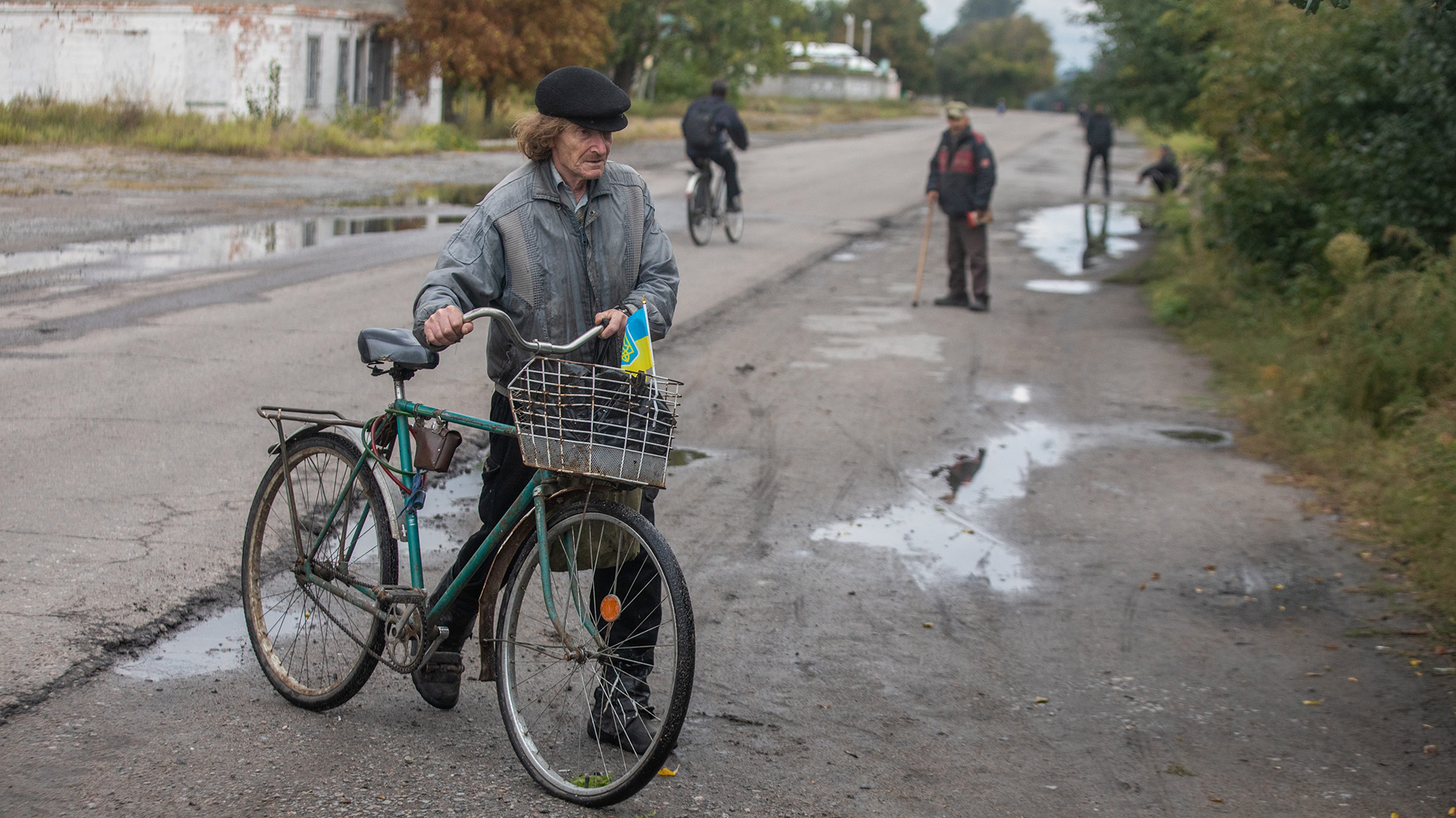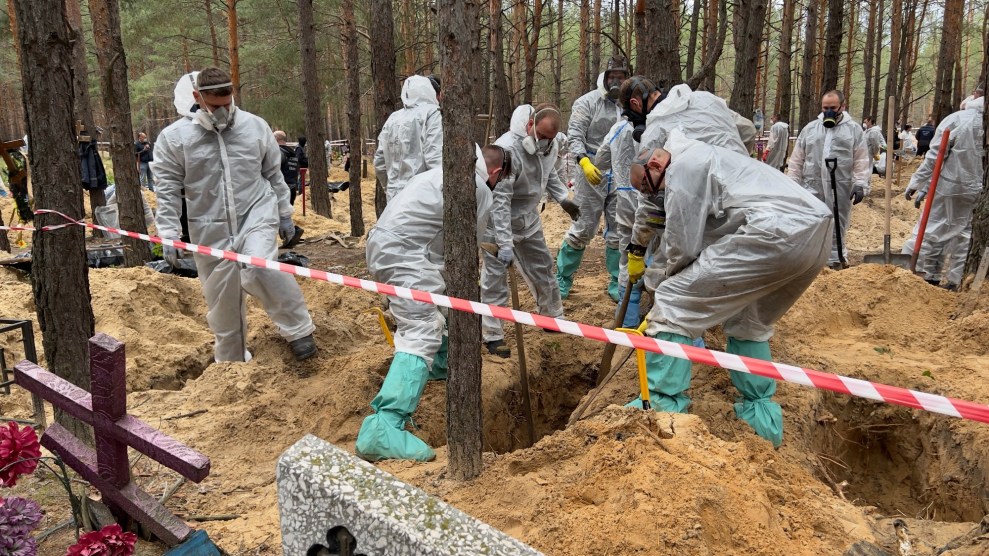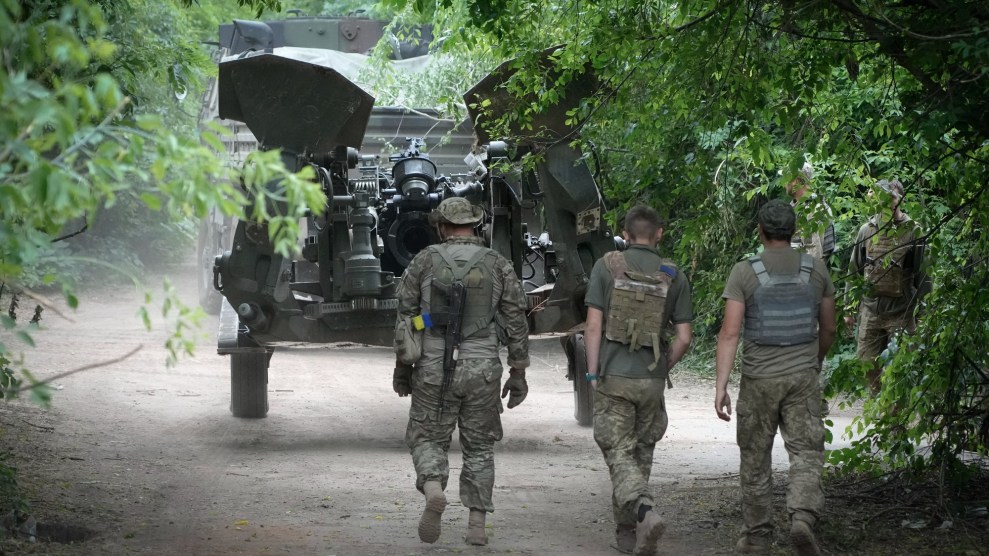When the Soviet Union still existed, Anatolii Harahatii made his career as a photographer in the small village of Savintsi in northeastern Ukraine. Snapshots of him as a younger, sharply dressed man appear on many surfaces in the cozy, one-story house he shares with Natalya, a former nurse and his wife of over 40 years. In photos from just a few years ago, he appeared happy and healthy, posing with Natalya and their two adult children.
As was the case for most Ukrainians, Anatolii’s life was forever upended on February 24 when Russia launched its full-scale invasion of their country, and by early March troops had occupied Savinsti. Russia’s goal, which its government justified with an often head-spinning mix of falsehoods, was nothing less than to topple Ukraine’s democratically elected government and install a puppet regime in its place. As Ukrainian resistance proved to be more formidable than Putin had anticipated, Russian troops escalated their attacks on private citizens. Anatolii was one of them.
Anatolii intensely followed the frightening and chaotic news of the early days of the war. Several months later, we sat in his kitchen, as he recalled seeing the news of grandmothers standing up to Russian armored columns, blocking their path as they tried to make their way through small villages across Ukraine.
“It was heroism,” Anatolii told me, referring to the Ukrainian civilians’ attempts to physically block Russian tanks with their bodies. When he awoke one morning, he decided to find the columns of tanks, which he filmed. He then posted the footage online. At the end of May, Russian soldiers in masks, likely intelligence officers, arrested the 68-year-old pensioner. They considered his act of filming the tanks dangerous, likely due to the information it might provide to others in Ukraine, and believed he was in some way acting against the Russian authorities.
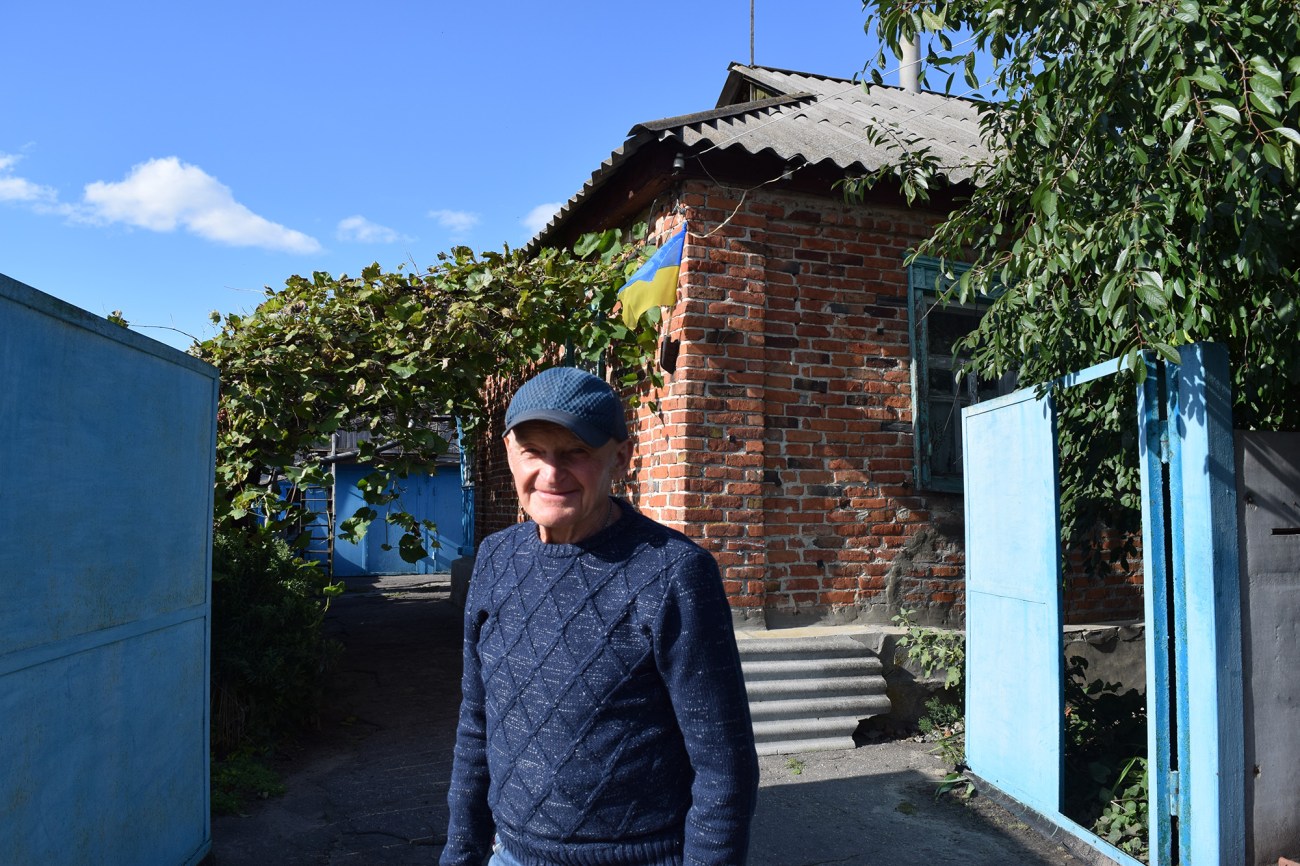
Anatolii
Sam Skove
He was imprisoned for weeks, and tortured by beatings and electric shocks as his captors tried to elicit information since the Russians believed he had been telling Ukrainian troops their positions. Sometimes, it was punishment for saying some Ukrainian words rather than Russian ones as he was being interrogated. Anatolii, like many Ukrainians, speaks both languages.
At some point in the summer, likely in June, Russian intelligence officers presented Anatolii with a choice. He could record a video in front of a bombed house in which he would blame Ukraine for the damage and praise Russian President Vladimir Putin. Or he could be shot.
Beaten to a pulp and fearful for his life, Anatolii agreed to make the video and was returned to his cell in the former police station where he was incarcerated with six other Ukrainian prisoners. After a sleepless night, he decided that he couldn’t betray Ukraine. Acquiescing to Russian demands would stain his soul forever. He resigned himself to death.
The next day, he told the officers that he had changed his mind. “Ok, get ready, we’ll shoot you in an hour,” he said they told him. He waited an hour for his execution, then a day, then ten. In three weeks, they once more offered him the chance to appear in the video. Again, he refused. “Then you’ll sit here forever,” they warned.
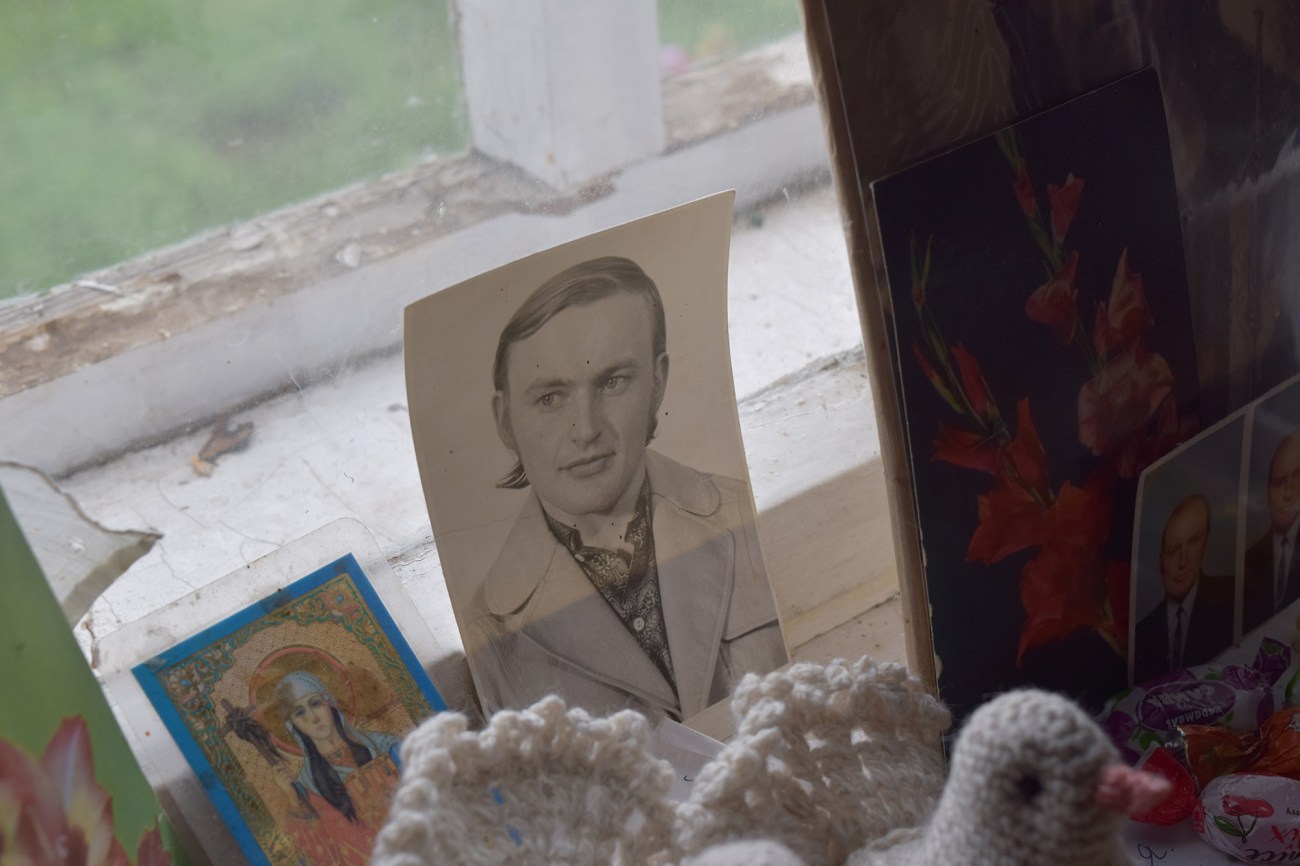
Photo of a young Anatolii.
Sam Skove
Forever turned out to be 100 days, from May to September 4th, far longer than the average 30 to 40 days that others served—based on interviews with those who had been held and their acquaintances. The prison was never empty. When some prisoners left, others would arrive. At some point, he was told he would be released if he agreed to be filmed saying that he thought Stepan Bandera—a Ukrainian nationalist from World War II and after, heralded by some and despised by others—was not a hero of Ukraine. He agreed on the condition that it not be published online. Nevertheless, he had to wait several more weeks before being released, and even then, it’s not clear why.
During this time, Ukraine’s outgunned forces gradually brought Russian forces to a standstill throughout the eastern part of the country. As the US ramped up the supply of weapons, the tide slowly turned in Ukraine’s favor. On September 6th, two days after the Russians freed Anatolii, the Ukrainian army counterattacked and rolled back Russian forces all the way to the Russian border, freeing some 3,000 square miles of territory. After seven months of occupation, Savintsi was free.
Sitting at his kitchen table recounting his story, Anatolii frequently broke into tears. At one point his emotions proved too much for him, and he reached for Natalya who was standing nearby. “Everything will be alright,” she murmured as she held him.
I arrived in Ukraine in late July to cover the war, and on September 12 came to the frontline city of Kharkiv, to cover the historic liberation of the territory. I then spent several days driving and hitchhiking around the town of Balakleya, about a two-hour drive from Kharkiv, and everywhere I went, I was told story after story about imprisonment and torture by the Russians.
If anything, the people with whom I spoke were just at the edge of a dark shadow cast by Russia’s occupation. According to a recent United Nations report on Russian war crimes committed from February to March, the UN had identified many instances of Russian forces executing, raping, and torturing Ukrainians. These included the regions of Kyiv, Chernihiv, Sumy, and Kharkiv, where I was based. The occupation from March to September is only now being investigated.
The UN report comes after widespread earlier reporting about Russian war crimes in the northern Kyiv suburb of Bucha, which Russia occupied in March during its attempted assault on the capital. When Russian forces pulled back, news outlets and human rights advocacy groups found numerous instances of Russian soldiers executing, torturing, and raping civilians and prisoners of war. A total of 458 bodies were eventually found. Richard Weir, a researcher for the advocacy group Human Rights Watch wrote in a report, “The evidence indicates that Russian forces occupying Bucha showed contempt and disregard for civilian life and the most fundamental principles of the laws of war.”
Ukrainian authorities have said that 30 bodies buried in a mass grave of over 400 people near the Kharkiv-region city of Izyum, occupied by Russia in April, showed signs of torture—some of the victims’ hands were tied behind their backs.
The first step of Russian intimidation in the towns and villages of Kharkiv region was to detain residents suspected of anti-Russian activity in sub-prisons, usually improvised in regional government buildings like schools or village halls. The next step was to move them to the cells in the police station in Balakliya. It’s unclear how many people were detained, but likely hundreds, as prisons were located in the regional towns of Balakliya and Izyum, and Balakliya detained a rotating population of 30 to 40 prisoners, according to Anatolii.
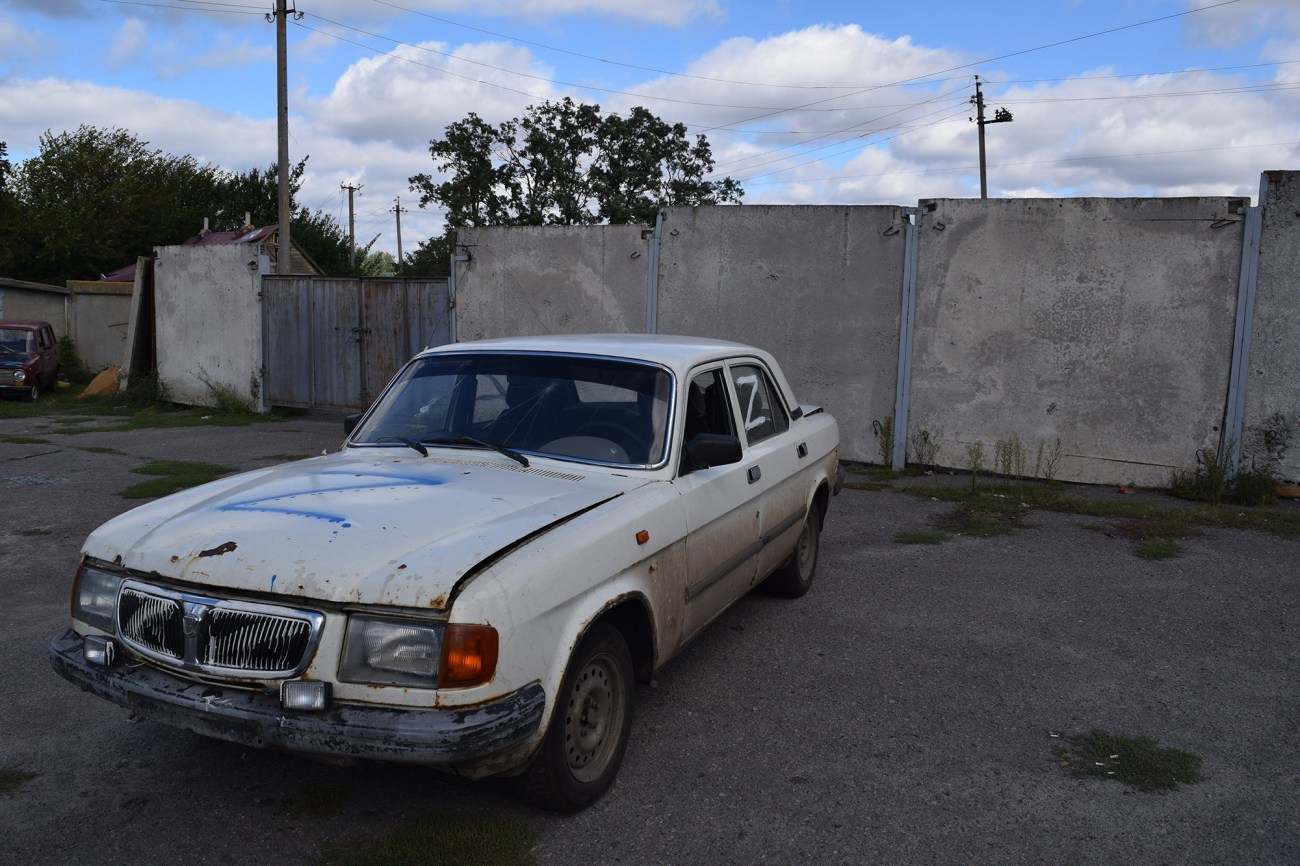
Stolen car with Russian “Z” markings.
Sam Skove
I went to the stately old village hall of Savintsi. In the front yard, two civilian cars marked with a “Z,” a symbol of Russian occupation forces, were parked. The cars, as well as one strip of body armor, were abandoned by Russian forces in their rush to escape the Ukrainian army’s blistering advance. I met the village administrator Irina as she sorted through papers in a high-ceiling second-floor office. She had spent months hiding from Russian occupation forces, who had kept prisoners in the cellar, she said, before transferring them to the central prison in Balakliya.
Unlocking the cellar door, she showed me the cramped, windowless conditions where captives were held. Prisoners would have had just enough room to stand up in an area crisscrossed by utility pipes. “I stayed in my house so they wouldn’t put me in the cellar,” she said. While it’s unclear who exactly was managing the prison system, Irina said that Ukrainian soldiers had told her officers from Russia’s Federal Security Service, or FSB, had been working out of the building. The FSB is Russia’s chief internal security agency and is notorious for its role in crushing political dissent.
In determining who to arrest and torture, Russian forces clearly focused in part on former members of Ukraine’s armed forces or their families. I spoke with a number of people who had been imprisoned or whose family members were. One of them was Oleksandr, a former sergeant in Ukraine’s army. He was lured out of hiding by the Russians after they detained his 28-year-old son. Oleksandr was imprisoned first at a school in the village of Verbivka, then moved to the police prison cells at Balakliya. He told me that he spent around 30 days being electrocuted and beaten by teams of four Russians, who he identified as FSB officers. As with Anatolii, he said that officers remained in masks and never said their names, with the exception of one who went by the name of Robinson.
At one palatial Swiss chalet-type estate on a scenic river bank, local residents said, Russian officers commandeered a house and used it to party late into night. “They would sing Russian songs,” Nikolai, a neighbor who lived several doors down, recalled. They did more than that as well, he said. A local Ukrainian would bring prostitutes to the building to entertain the officers. When visited several days after the liberation, multiple beds could be seen throughout the house, including in the kitchen and the basement. Three residents reported hearing of different cases of sexual assault in Balakliya at large, although none could be confirmed.
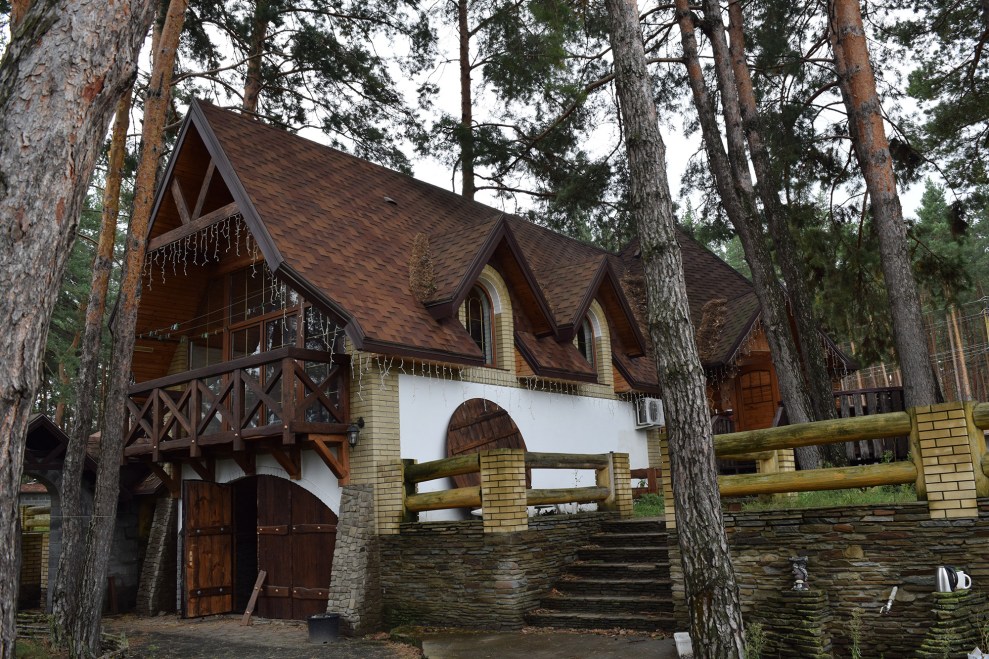
Brothel house.
Sam Skove
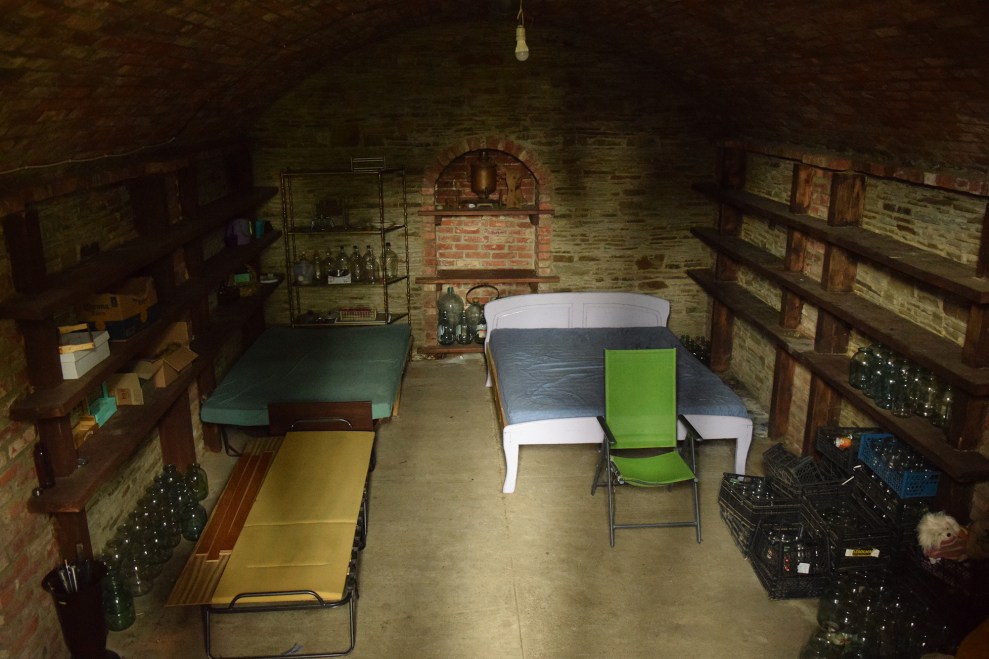
Brothel beds
Sam Skove
Other residents reported that entire families with ties to the military were collectively punished. One teenager in Balakliya who asked not to be named said that his friends had been taken for periods of 30 days because their fathers served in Ukraine’s army. Vadim, a villager in Savintsi said that he heard that a man named Sergei had been kidnapped and even taken back to Russia because two of his sons were in the military.
Russian forces did not just go after those with military ties though. Two individuals I spoke with appear to have been targeted for no clear reason. One of them was Zoya, a sixty-year-old woman who I met at her sister’s house in Savinsti. The house had its own complement of livestock—cows, pigs, and at least one cat. Dressed in a green vest, her hair in a gray bowl cut, her front teeth shining with gold, Zoya’s eyes flashed with apprehension when she saw my camera but eventually agreed to an interview.
Zoya said that two men in masks came to her door one day looking for a woman named “Tamara.” Zoya, a rail-thin woman with a shy smile, was sure there was a mistake. The officers double-checked their documents. They had the right address, they said. Hoping to convince them of their mistake, Zoya ran back into the house and brought out her identity documents confirming she was not the mysterious Tamara. “Come with us and tell them there that you’re not Tamara,” she said they told her, assuring her that they would then bring her back home.
For the next 49 days, Zoya remained in jail, guarded at one point by bearded soldiers from Chechnya, an ethnic republic in Russia (with its own history of Russian aggression). At first, Zoya attempted to explain to the guards that she must be there by mistake. Eventually, she stopped because it seemed to make no difference. She believes someone provided false evidence against her. When her Russian interrogators demanded that she “confess,” seeming to think she had some sort of connection to Ukrainian forces in the village of Andriivka, she says she had no idea what to say.
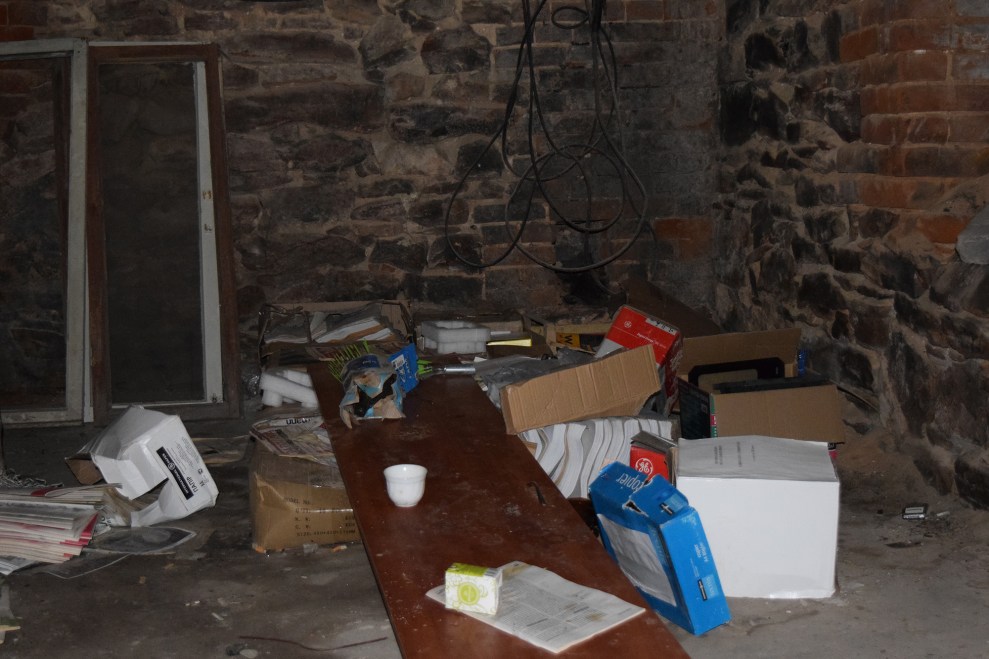
Local administration prison.
Sam Skove
It’s unclear what specifically happened to Zoya while she was imprisoned. Sitting on a bench at her sister’s home in Savintsi, the crisp sunny day contrasts sharply with her fragile emotional state. Her eyes stared at an unseen middle ground and relatives frequently embraced her to reassure her. “They didn’t rape,” she said, “but all the rest…” Her voice trailed off.
Some of Zoya’s fellow prisoners were mothers whose sons were serving in the Ukrainian army. Like Anatolii, at least one of them was offered the chance of release in return for filming a video. But unlike Anatnolii, she took the offer and was freed. Zoya at first spoke with the other prisoners, but after time pretended to be mute, worried that the other prisoners were informing on her. Were it not for the Ukrainian army’s entry into Balakliya, Zoya would still be sitting there.
I encountered a similarly baffling story of arrest in the neighborhood of Lager, a section of Balakliya, where I met Viktor sitting outside his house on the road towards a former Russian base. Viktor, a 72-year-old businessman who proudly posed for his photo, told me how he was arrested shortly after returning home one morning. Maybe he was arrested for his money, he wondered, since he was well-known as a prosperous businessman in the town, at one point owning a Mercedes S-Class vehicle. Another possibility is that someone denounced him.
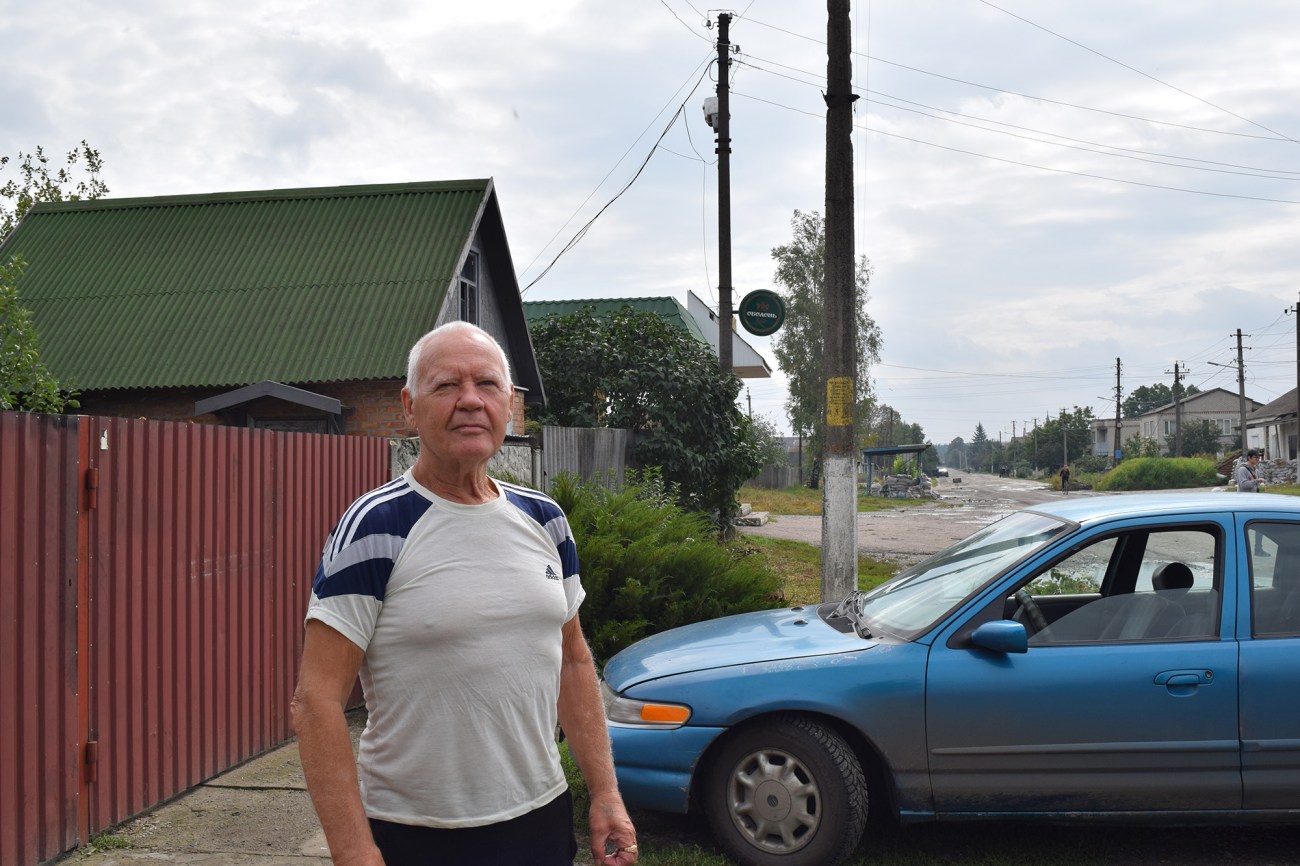
Viktor
Sam Skove
Once when Viktor was interrogated, the Russians shocked him with an electric prod. Other prisoners, he said, were beaten so violently they lost teeth, allegations that both Anatolii and the ex-soldier Oleksandr corroborated with their own stories of beatings and the administration of electric shocks. After 12 days, during which he declared a hunger strike, the Russians released Viktor without any explanation. They also held onto his Ukrainian identity documents, taunting him by saying the Ukrainian government was not going to return to power.
Now the Russians have left Balakliya. Since it was occupied and liberated with minimal fighting, there are relatively few civilian casualties or damaged buildings in its wake, although there is the legacy of imprisonment and torture, plus petty theft by Russians and cutoffs to electricity, water, and heat. After 100 days in Russian captivity, Anatolii is now settling back into a life beyond the cell doors.
A man who once made business trips to Moscow for photography equipment, his voice rises in disgust as he declares he won’t speak Russian now. While being interrogated, the FSB would shock him for each word of Ukrainian he spoke, accusing him of being a “Banderite.”
Stepping into the sun of the courtyard, he appeared to savor the moment, and yet it reminded him of his imprisonment. “We had only five minutes of sun,” he said, during the five months in the darkness of a Russian prison and occupation.
